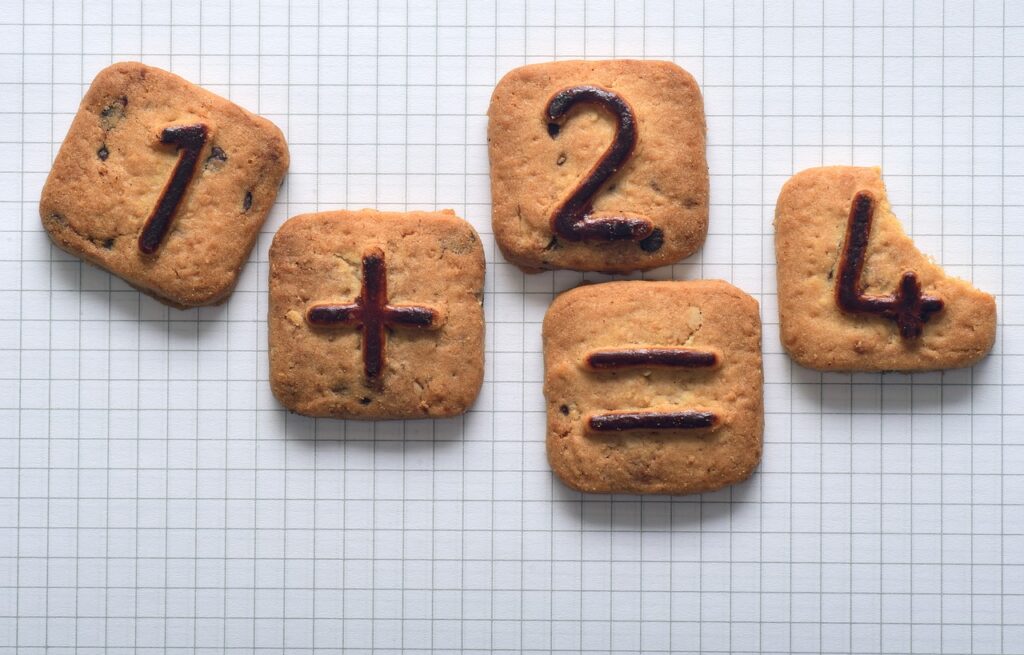Calorie counting food in the short term might have some merits, but calorie counting for weight loss in the long term does not produce success. If you are reading this article, I imagine you have done some dieting in your time and been through a weight loss journey or two. You may have even used some Weight Watchers ready meals or a similar brands and programs that helped you count calories, leaving you less focussed on reading the back of every packet. However, your brain was still caught up on the drama of what you were and were not allowed to put into your body.
Although there are some pro’s to counting calories, this is not something you want to do for the rest of your life, right? It can make you feel restricted and a little bit different when you are turning to the back of every packet or asking politely “How many calories are in that please?”. It creates more focus on food which is the opposite of what you are trying to achieve in weight loss. It takes up way to much brain space which stops you from creating more joy away from food.
In this article, I want to share with you the positives and negatives of calorie counting food and offer you some tips on how to improve your success in weight loss.
Why calorie count food?
Calories are a unit of energy, and it is generally understood that you need to consume fewer calories than you would normally eat, so that you can lose weight. This is because the current number of calories you consume keep you at your current weight. Therefore, you need to eat less. Calorie counting food is an easy way to educate the masses about the amount of energy your body requires. It is more complex than this as you will discover, but that is the crux of it.
How is calorie counting food helpful in the short term?
Helps you decide which foods to avoid
Calorie counting food can give you a good idea of those foods that are high in calories. For example, a latte and a muesli slice from a café weigh in at a whopping 500 calories. That is 1/3 of the number of calories recommended for the average women in one day. Once you realise this, you may think twice about ordering that slice on the side or opt for a healthier lower calorie option.
Allows you to become more familiar with how much food to eat across a day
You may recognise the amount you are eating in a day is more than your body requires according to health experts. This is great on an intellectual level, but eating less of the foods you love is where the challenge comes in. Managing your mind around this is important.
Calorie trackers might offer menu plans
Many of the calorie counting food apps and information provide you with example menu plans. This is useful because your brain will like the direction and your brain won’t have to think too hard. This helps decrease drama and confusion around what to eat. Although this does not usually cater for individual preferences and individual statistics like age, weight, and medical conditions.
It allows you to experience hunger
You might be thinking, ‘She is saying that like it is a good thing’. And I am. We have been trained to fear hunger. Over the last 20 years, we have been trained to snack. Hunger is not an emergency. It is nothing to fear.
The likelihood of getting hungry when you are calorie counting food is high. Especially if you include foods higher in sugar which tend to be higher in calories. Eating these foods leaves you fewer calories to put into your body that will do the job of making you feel fuller for longer. I am all for experiencing some hunger, but not in a way that makes you feel resentful and unhappy in the process.
The weight loss journey needs to be enjoyable so that you stay motivated to keep taking steps to get to your goal. Being conscious of the types of calories you are putting into your body and the way they make you feel is a good use of your time.
How is calorie counting food not helpful?
Our body does not treat all calories as equal
It does not take into account the complexities of how our body processes nutrient-dense foods and their impact on our health. Calories are treated differently in our body. For example, 240 calories of carrots (approximately 10 carrots), would have a different feel in your body to 240 calories of Coca-Cola (a bottle of coke). Carrots would take longer to eat and allow you to feel a full sensation in your body. Whereas, a bottle of coca-cola can be downed in 2 minutes and leave you looking around for the next set of calories.
Calories from fibre (like in carrots), not only help you feel the sensation of fullness, but they also can mean calories out the other end (yes, that does mean bottom). In his book How Not To Diet, Michael Greger, Md reports that you can lose more weight on a high-fibre diet eating the same number of calories because some of those calories get trapped in the fibre moving through your body and not absorbed into your system to be used for glucose or stored as fat.
Too much focus is placed on the numbers and less on the health and long-term benefits
If you are focused on what numbers are attached to food all the time and what you can’t eat, then you are probably not coming from an abundant mindset. You may be missing out on the opportunity to focus on all the beautiful and healthy foods. Foods that you get to try that are super yummy and have great health benefits for your body such as good fats like nuts, chia seeds, full-fat yoghurt and dark chocolate. Or exploring great recipes with leafy greens which reduce inflammation and are great for your gut and overall wellbeing.
It can leave you uncomfortably hungry
If you use up all your calorie intake on foods that don’t leave you feeling satisfied for longer, you can find yourself feeling uncomfortably hungry. Eating foods high in sugar and flour can mean that you will experience hunger earlier than if you ate a meal with protein, vegetables and good fats.
You spend too much time focusing on food and your weight
Counting calories is not sustainable as you spend way too much time focusing on food and not on other areas in your life that may bring you joy aside from food.
Calorie counting tips
- Eat calories that will fill you up for longer – protein and fibre rich food.
- Don’t get too caught up on the exact numbers, this makes the process tedious and not one you will want to do for a longer time. It will also have you focusing way too much on food! Sustained weight loss is trying to do the opposite and reduce your inner chatter around food and weight.
- Get conscious of how each food feels in your body, decide which calories are the ones that fuel your body in a way in which it loves and doesn’t leave you super hungry before you eat your next meal.
- Cut right down on liquid sugar. That is fizzy drinks or alcohol that take up a high percentage of calories in the day. Explore and find another drink without all the calories. I switched to green tea, coconut water and herbal tea and reduced my alcohol intake over time. I once presented a workshop with a nutritional therapist who called alcohol liquid cake. This stuck with me and was a good motivator to reduce my intake.
- Schedule fun things in your day to prevent being besotted with calorie counting and constantly thinking about food. Go for a walk, listen to an interesting podcast, play a game, do some housework, turn the radio up and dance (maybe not in the office!), write down some goals you want to achieve this year aside from weight loss. I make sure that I schedule exercise and connection first. This helps maintain a more positive attitude and approach to challenges.
Long term weight loss success
Long term weight loss success means reducing the drama you have around food and weight. Although calorie counting food has its merits in the beginning it is not a long-term weight loss success story.
Long term success depends on building the relationship you have to follow through on what you say you are going to do and to make choices because you want to look after yourself, not because you want to be out of the body you are in.
It is not about losing weight and then going back to normal. Eating ‘normally’ had you at your previous weight. It is about creating new habits. Habits that you want to do for the rest of your life. It is about experimenting, learning more about yourself, putting you in control of your future, and not relying on the outside world to fix it for you.
So, although counting calorie food is an option, and perhaps a useful place to start, it is not something you want to do for the rest of your life. I certainly don’t. Instead, weight loss can be about developing a positive mindset and learning the tools to ensure that you can keep taking action in your weight loss journey. Weight loss doesn’t have to be hard. It can be enjoyable.
If you want to know how to make weight loss a more enjoyable journey, then jump onto my schedule here to book a 20-minute free no-obligation discovery call and let me share the steps.
Have a beautiful day




Pingback: Is Fibre Good For Weight Loss? ~ Think it, Live it, Love it
Pingback: 5 Tricks to make Losing Weight Easier - Think it, Live it, Love it